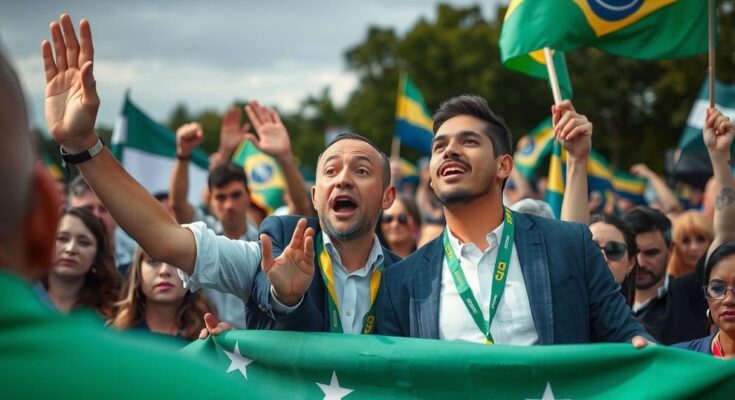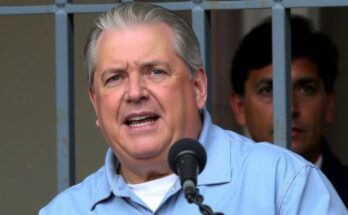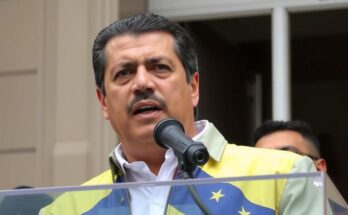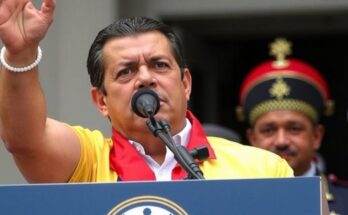Donald Trump’s recent victory has bolstered Jair Bolsonaro’s ambitions for a 2026 presidential run in Brazil, where he currently faces a ban from office until 2030. Amidst ongoing legal efforts to overturn this ruling, Bolsonaro’s supporters are looking to leverage Trump’s influence to put pressure on the current administration. Experts suggest that this political landscape could favor a resurgence of right-leaning ideologies as Brazil moves closer to upcoming elections.
The recent electoral victory of President Donald Trump in November has ignited aspirations in Brazil for former President Jair Bolsonaro, who finds himself disenfranchised by a ruling from the Superior Electoral Court that bars him from public office until 2030. Characterized as the “Trump of the Tropics,” Bolsonaro’s disqualification arises from supposed abuse of power and unjustified criticisms of Brazil’s electronic voting system. Despite these restrictions, Bolsonaro’s supporters are actively exploring legal means to contest the ruling, with an eye on leveraging Trump’s influence to press the Brazilian government, led by President Luiz Inácio Lula da Silva (Lula), to facilitate a 2026 presidential campaign for Bolsonaro.
Eduardo Bolsonaro, a congressman and son of the former president, articulated that “Trump’s victory goes far beyond being positive for democracy in Brazil and the world; it is good news for global peace.” Notably, he highlighted Lula’s earlier endorsement of Kamala Harris and her negative perceptions of Trump, remarking on Lula’s subsequent commendation of Trump post-election, which appeared as an effort to temper earlier contentious remarks. However, several prominent allies of Lula, like Gleisi Hoffmann and Fernando Haddad, have vociferously criticized Trump’s impending administration.
Bolsonaro anticipates that Trump’s election will confront the Lula administration with difficulties. He posited that Lula would struggle to negotiate with Trump, thereby potentially intensifying alignment with China as a counter-strategy. This, Bolsonaro argues, creates a divide between politicians and the populace, intensifying the focus on prevailing issues such as healthcare, education, and job security—an echo of the circumstances surrounding the recent American election.
Discussions among BRICS nations, which include Brazil, on diminishing dollar supremacy in the global market are viewed unfavorably by Bolsonaro. He warned that such strategies could invoke trade barriers, which did not occur during his tenure. He emphasized the likelihood that Lula’s business allies prioritizing U.S. relations may turn against him if economic pragmatism prevails over ideological considerations.
Amidst Bolsonaro’s political challenges, he cites his shared ideologies with Trump on issues of free speech as supportive of his renewed political ambitions. Despite being barred from office until 2030, the latest polls suggest that in a conceptual matchup with Lula, Bolsonaro would garner significant voter support, highlighting his resumed popularity. Political analysts note that Bolsonaro’s aspiration for presidency is hindered not only by legal constraints but also by the dynamics of Brazil’s electoral landscape.
While Bolsonaro aims to overturn his disqualification, Congressman Marcel van Hattem expressed optimism regarding a resurgence of right-leaning ideologies fueled by Trump’s success, suggesting that the right’s potential in Brazil for subsequent elections could increase significantly. Ultimately, despite the current uncertainties, the political climate in Brazil appears ready for a shift towards conservative leadership as Bolsonaro’s influence and validation from Trump’s victory rekindle hopes for his political resurgence.
The article analyzes the impact of Donald Trump’s election victory on the political landscape in Brazil, particularly concerning former President Jair Bolsonaro, who faces a political ban until 2030 due to judicial rulings. Bolsonaro’s alignment with Trump’s ideologies positions him uniquely amid the current Brazilian political climate, dominated by President Lula’s administration. The former president’s supporters aim to exploit Trump’s global influence to instigate changes that may enable Bolsonaro’s return to power.
In summary, Trump’s electoral success is perceived as a catalyst for Jair Bolsonaro’s hopes of political revival in Brazil, fostering initiatives among his supporters to challenge the ruling barring him from office. With rising concerns regarding the Lula administration’s effectiveness and economic policies, Bolsonaro’s alignment with conservative ideologies and potential legal maneuvers may significantly reshape the country’s political dynamics leading up to the 2026 elections. The evolving relationship between U.S. politics and Brazilian governmental strategies will undoubtedly play a pivotal role in future electoral outcomes.
Original Source: www.foxnews.com




